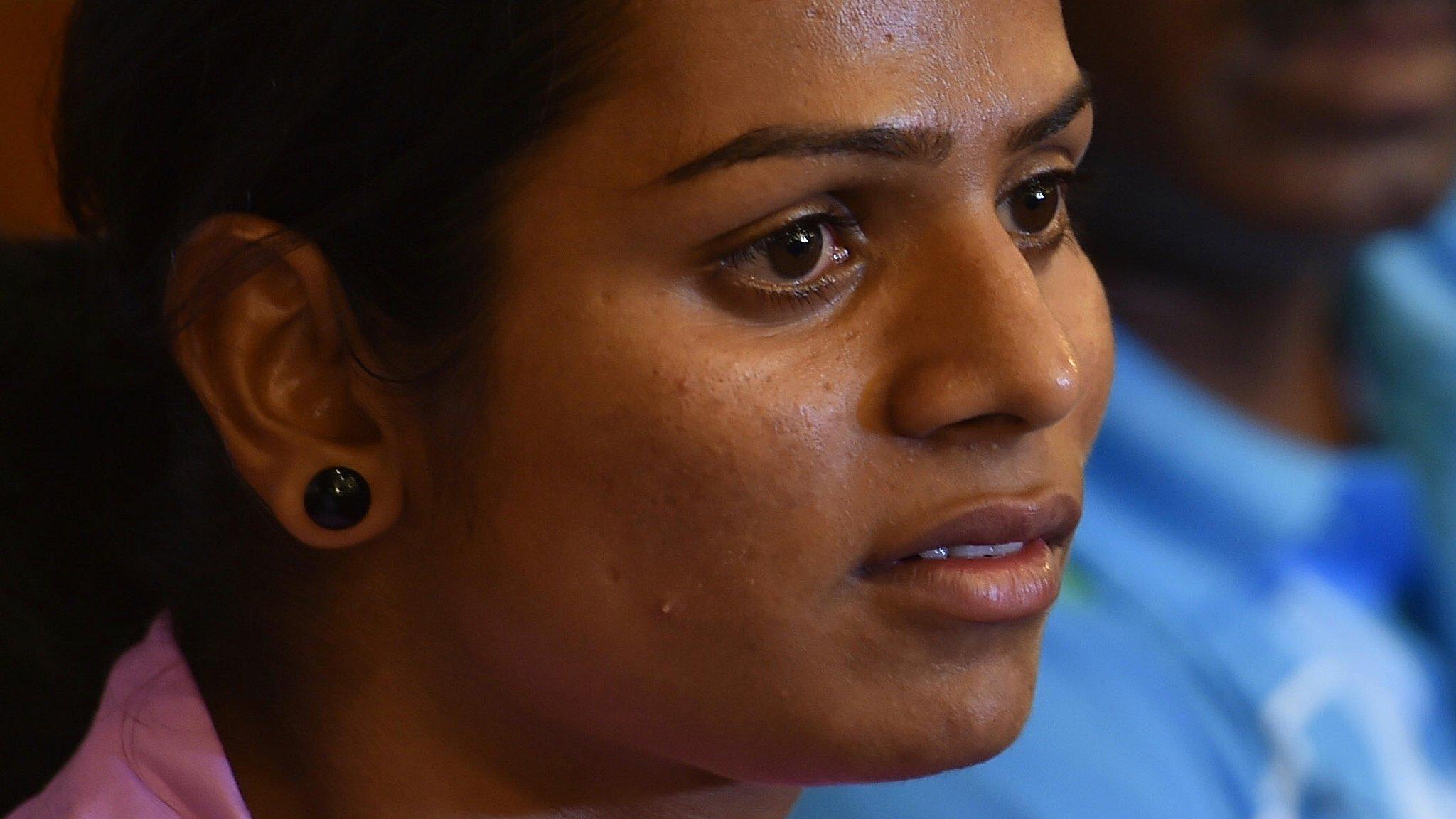Mo Farah: Fancy Bears hack prompts response from Olympic champion
- Published
I’m never going to fail a test - Farah
Mo Farah stressed he has "never failed a blood test" following the release of hacked documents which appear to show his test results once caused suspicion.
Hackers Fancy Bears published documents on Wednesday which state Farah returned a sample which needed further testing.
The data goes on to show Farah was then cleared when his results were later viewed as "normal".
"We have never been informed of any of Mo's test results being outside of the legal parameters," a spokesperson said.
"Nor has Mo ever been contacted by the IAAF about any individual result. It is totally incorrect and defamatory to suggest otherwise, and we will pursue any claims to the contrary through all necessary legal routes," they added.
"It has been widely reported that previous leaks from this organisation have included false or altered documents, and we have asked the IAAF to urgently look into the validity.
"Regardless, any suggestion of misconduct is entirely false and seriously misleading. Mo Farah has been subject to many blood tests during his career and has never failed a single one."
Farah, who won gold in the 5,000m and 10,000m at both the 2012 and 2016 Olympics, is preparing for the World Championships in London on 5 August.
Fancy Bears - thought to be a Russian hacking group - began releasing athlete data last year and focused largely on naming those who had sought Therapeutic Use Exemptions, which allow athletes to take banned substances for verified medical needs.
The IAAF - athletics' world governing body - said in April it was hacked by the group in February.
"The IAAF offers its sincerest apologies to the athletes who believed their personal and medical information was secure with us," the organisation said on Thursday.
"We will continue to work with cyber incident response firm Context Information Security, who identified the Fancy Bears cyber attack which we announced in April. Context believes that the information published yesterday emanates from that attack."
"There can be no excuse for the leaking of personal and medical data or the releasing of information on informants and ongoing investigations as this puts those individuals involved at risk and harms the fight against doping," said IAAF president Lord Coe. "However, we must acknowledge that we need to look at our processes.
"We continue to investigate any suspicion of doping in a robust way in accordance with applicable protocols and under World Anti-Doping Agency supervision. It would be wrong to make assumptions based upon leaked documents without the full evidence and that evidence being put into context."
Farah has always vociferously denied ever taking performance enhancing drugs.
His coach since 2011, Alberto Salazar, is currently under investigation by US Anti Doping but issued a 12,000- word open letter in 2015 denying accusations he violated anti-doping rules.
- Published6 July 2017

- Published4 July 2017

- Published3 March 2018
